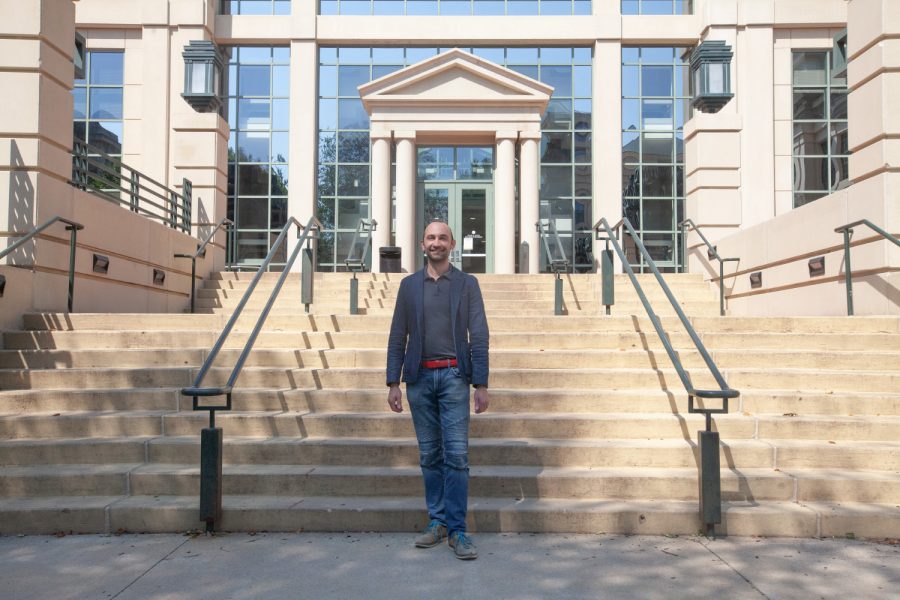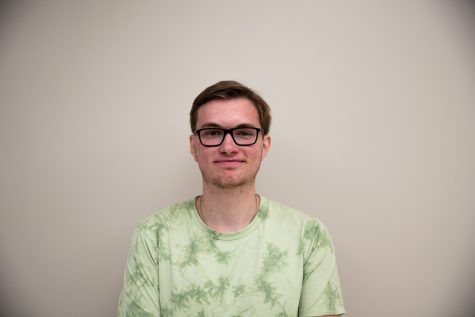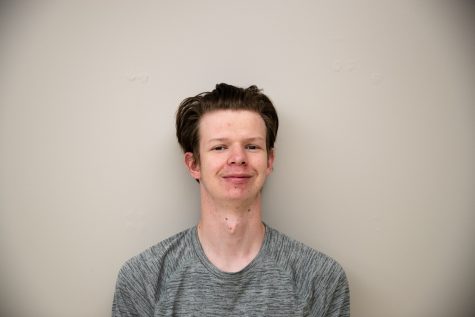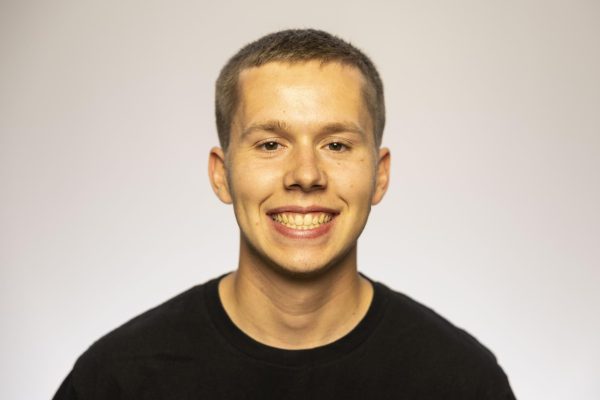Tippie professor adapts economic model to understand vaccine hesitancy
Richard Peter and his colleague have conducted research to help public health officials better understand COVID-19 vaccine hesitancy and tailor messaging to address it.
Associate Professor of Finance Ricard Peter stands in front of the Tippie College of Business by the Pappajohn Business Building on September 10, 2021.
September 14, 2021
A professor in the University of Iowa Tippie College of Business adapted an economic model of decision-making to better understand COVID-19 vaccine hesitancy.
UI Associate Professor Richard Peter and his co-author, Professor Christophe Courbage of the Geneva School of Business Administration, have altered the economic-based model to incorporate factors related to hesitancy over the COVID-19 vaccination process.
Peter said people’s uncertainty stems from the effectiveness and potential side effects of the COVID-19 vaccine, discouraging vaccination.
He added that, while some people will trust the science behind the vaccine and go-to sources like the Centers for Disease Control and Prevention for answers, others still question its messaging.
Other factors the research considered included an individual’s likelihood of getting COVID-19 and how badly someone may be affected if they were to get it, Peter said. In these cases, he added, vaccine hesitancy can work both to encourage or discourage people from receiving a vaccine.
Peter said different types of uncertainty can matter in different ways at the individual level. While the uncertainty surrounding the vaccine lowers uptake for all groups, sources of uncertainty associated with COVID-19 can go either way, he said.
“[Some people] might say, ‘Given that there’s this uncertainty, maybe it’s better for me to get the shot,’” Peter said. “But our model also shows that for other types of people, it can be different. It can be that they say, ‘Well, if it’s so uncertain, maybe we’re all just going to get it anyway, so what’s the point?’”
Peter added that this study aims to clear up the underlying, root causes of an individual’s vaccine hesitancy.
“I always have a hard time accepting that people are just stubborn, and they don’t think about stuff,” Peter said. “Everybody processes information and thinks about stuff, they just think about it their own way.”
Instead of drawing assumptions about people’s lack of cooperation or desire to listen to authority, Peter said academics and scientists must aim to take individual thought processes into account to help people.
Tom Snee, the associate editor of University News Services at the Tippie College of Business, said the model is a framework for epidemiologists to study the effects of vaccine hesitancy, and Peter hasn’t produced any data using it.
“I wanted to reinforce the point that Richard only developed the model,” Snee wrote in an email to The Daily Iowan. “He hasn’t used it — that’s for epidemiologists and others who fill in the data.”
Natoshia Askelson, associate professor in the UI College of Public Health’s community and behavioral health department, said she has worked on multiple campaigns to increase vaccination against COVID-19 throughout Iowa, including a CDC-funded campaign targeted at midsize Iowa communities.
She likens Peter’s research to the extended parallel process model, developed by researcher Kim Witte at the University of Kentucky in the 1990s.
One part of Witte’s research explains that individuals make decisions based on perceived threats and efficacy. Askelson said, in this case, the threat is someone’s perception of the severity of and susceptibility to the illness, while the efficacy is one’s belief that the vaccine is effective and available.
There have been many mixed messages about how likely people are to get COVID-19, and how severe it really is, Askelson said.
“We’ve had leaders who say it’s a hoax,” she said. “We’ve had people who say it’s not that big of a deal, it’s like a cold … That’s been the battle from the beginning, really. [COVID-19] is unlike cancer, where it’s really hard to convince people that cancer is a good thing or made up.”

















